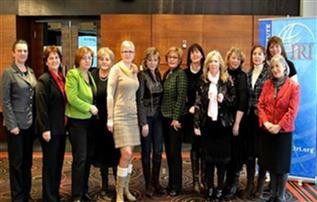
The Challenge
Full inclusion of women from across society is critical to U.S. foreign policy objectives and imperative for the economic growth and stability of Bosnia and Herzegovina (BiH). Women are important as agents of peace, reconciliation, democracy, economic development, and stability.
BiH has made progress in promoting gender equality through legal and institutional frameworks. However, women still face obstacles to achieving full political, economic, and social participation. The economic status of BiH women remains low, and women are largely absent from national and local decision-making bodies. In addition, nearly half of BiH women have experienced some form of gender-based violence in their lifetime, well above the global average of 35 percent, most likely from their domestic partners. Only 5 percent of BiH victims of gender-based violence turn to institutions for help. Institutions responsible for protecting them lack adequate training or proper referral mechanisms.
Our Programs
USAID addresses gender equality in BiH through its democracy and governance and economic growth programs, and in close coordination with the other sections of the Embassy on a mission-wide Women, Peace and Security project. Some of our recent programming and achievements are described below.
Women’s Political Participation
- USAID strengthens women’s political participation and supported women members of parliament to enhance their constituency outreach and help them develop common legislative initiatives. USAID helped create the first three Women’s Caucuses in the Balkans – in the Federation of BiH Parliament, Sarajevo Cantonal Assembly, and the Herzegovina-Neretva Assembly – uniting women members of parliament from different political parties and ethnicities. USAID supported those caucuses in defining joint policies to support women in agricultural production and on maternity rights.
- To strengthen governing institutions, USAID conducted trainings for 47 female members of parliament on accountability and transparency. The training used a USAID-supported toolkit for drafting gender-balanced budgets and legislation that was adopted as a by-law by the BiH Government as a mandatory requirement for all ministries and Institutions.
- USAID helps victims of war and other trauma to heal, raise self-esteem and become leaders in trust-building and reconciliation processes in their communities. The project provides them with training on social justice, peace building and advocacy, new knowledge that empowers them to organize and initiate dialogue and advocacy campaigns to promote reconciliation in the communities themselves.
Gender Equality and Human Rights
- Through direct assistance to the BiH Gender Equality Agency, USAID will improve the system of protection for women victims of domestic violence. This activity will provide accredited training for frontline service providers and managers to improve their understanding of gender-based violence (GBV). It will also establish clear protocols and high standards for the relevant institutions, and a referral mechanism for coordinating their work.
- USAID improves the livelihoods of women survivors of violence and other socially disadvantaged women through a grant challenge fund. The program is designed to encourage public-private partnerships by matching funds from local municipalities for small projects that will increase incomes and create economic opportunities for female entrepreneurs. For example, USAID signed agreements with nine local municipalities to support micro, small and medium-sized businesses and farms to provide employment for women victims of violence, single mothers, unemployed women under the age of 30, and women with disabilities or a disabled child.
- USAID helps women influence and improve anti-discrimination policies and practices, and advocate for implementation and compliance with existing gender equality laws.
- USAID supports the WomenNet NGO network, led by the Women-to-Women organization, to advocate for amendment of existing criminal laws in BiH to increase the punishment for perpetrators of violence against women and children and to bring such punishment in line with main international conventions (of the UN and the Council of Europe).
Women’s Entrepreneurship and Other Employment Opportunities
- With USAID support, WomenNet also combatted discrimination against women in the workplace and successfully advocated for legislative change to equalize maternity benefits for all women throughout the Federation of BiH. To date, the draft regulation is at the Federation of BiH Ministry of Labor and Social Welfare for review.
- USAID assistance provided specialized training to 131 women judges and prosecutors, nearly half the total number of participants. To increase the overall position of female judges and prosecutors in BiH, USAID assistance was also used to develop fair and transparent procedures for evaluating the work of judicial professionals.
- Forty-two of 275 women obtained jobs following completion of USAID-supported training in information and communications technologies (ICT). Female participants in the trainings represented 43 percent of all project trainees, which is more than their overall percentage of the technical college graduates targeted (33 percent). USAID also trained 105 women from small and medium-sized enterprises in the ICT sector; 31 of them were in senior technical and/or managerial positions.
- Women farmers and agricultural producers represent a significant portion of beneficiaries under USAID’s program to expand access to markets for BiH agricultural producers and help them implement international product quality standards. The program supports a wide-range of training for women entrepreneurs and associations that produce and process products made from medicinal and aromatic plants, milk and dairy, and fruits and vegetables. The training is designed to enhance opportunities for women to establish or develop their agri-businesses or obtain full-time, income-generating jobs in target sub-sectors and processing activities. The program also actively supports women’s empowerment in agriculture through a small grants program.







Comment
Make a general inquiry or suggest an improvement.